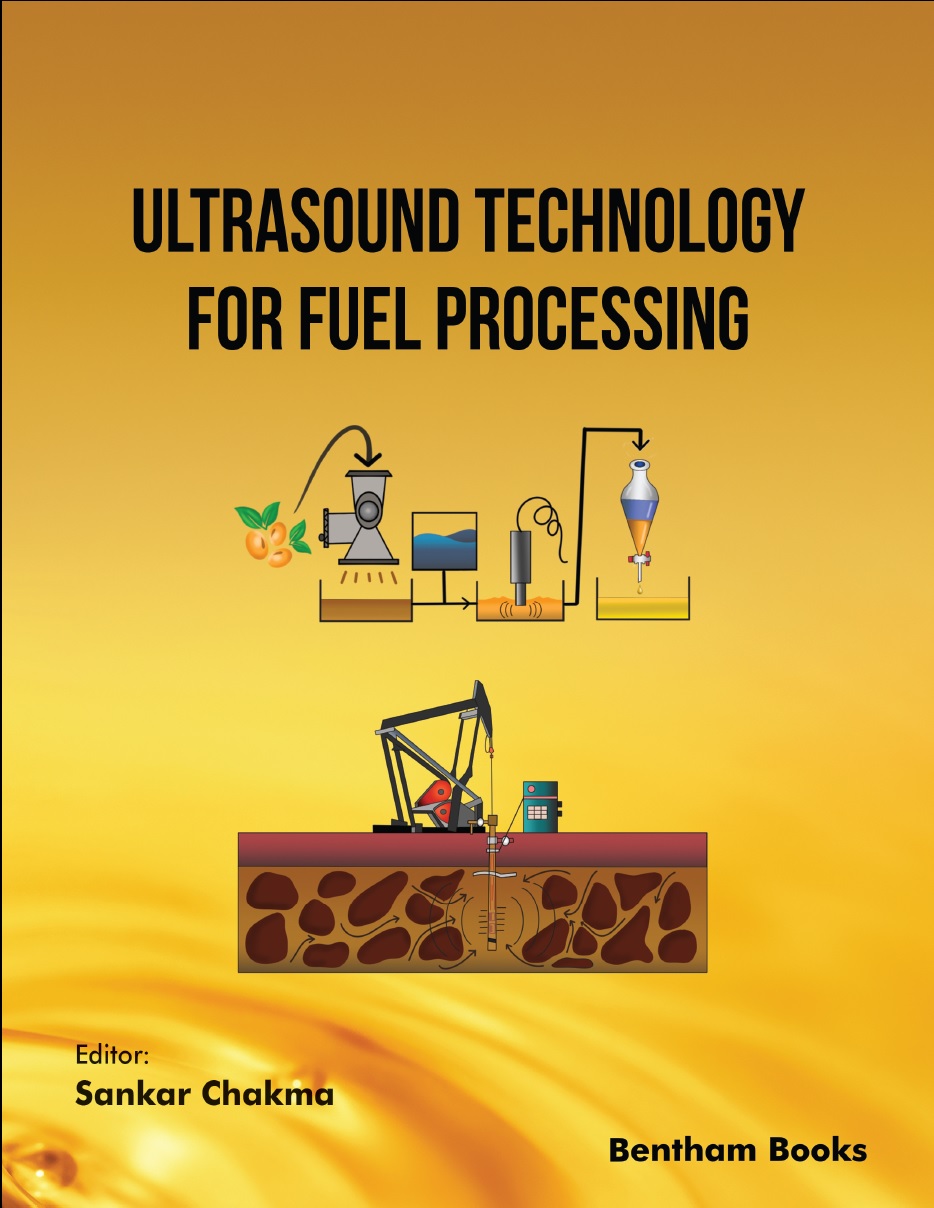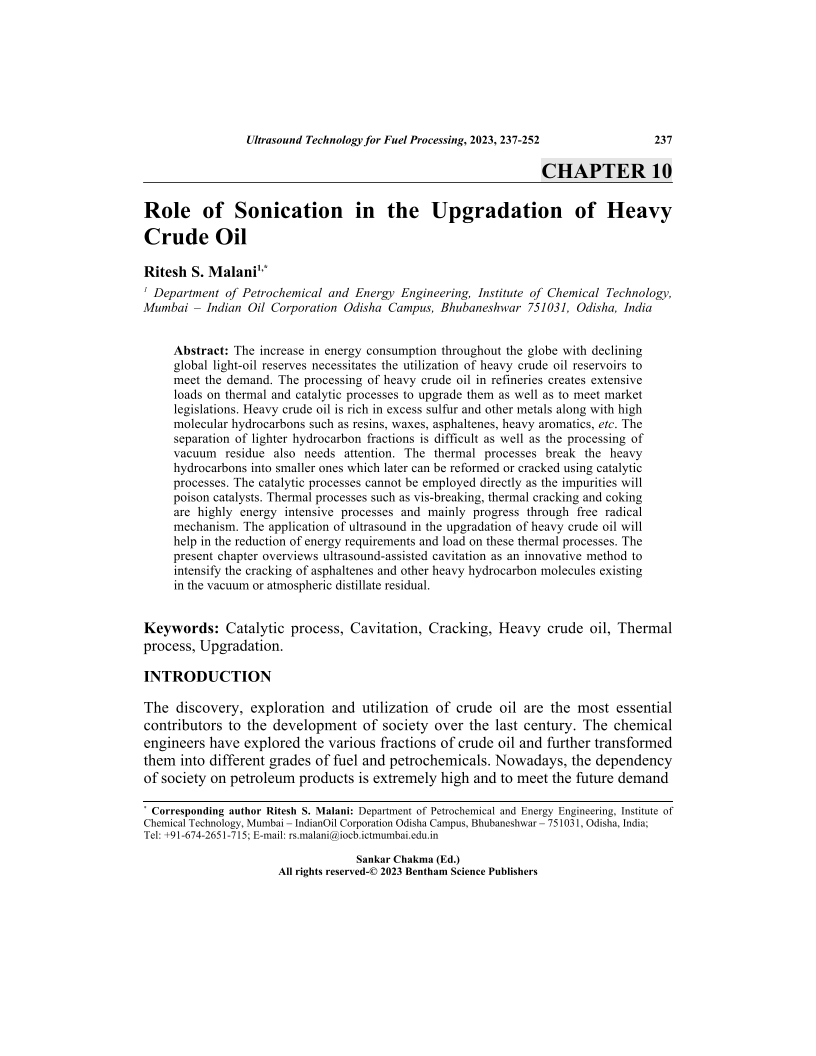Role of Sonication in the Upgradation of Heavy Crude Oil

- By Ritesh S. Malani1
-
View Affiliations Hide Affiliations1 Department of Petrochemical and Energy Engineering, Institute of Chemical Technology, Mumbai Indian Oil Corporation Odisha Campus, Bhubaneshwar 751031, Odisha, India
- Source: Ultrasound Technology for Fuel Processing , pp 237-252
- Publication Date: August 2023
- Language: English
Role of Sonication in the Upgradation of Heavy Crude Oil, Page 1 of 1
< Previous page | Next page > /docserver/preview/fulltext/9789815049848/chap10-1.gif
The increase in energy consumption throughout the globe with declining global light-oil reserves necessitates the utilization of heavy crude oil reservoirs to meet the demand. The processing of heavy crude oil in refineries creates extensive loads on thermal and catalytic processes to upgrade them as well as to meet market legislations. Heavy crude oil is rich in excess sulfur and other metals along with high molecular hydrocarbons such as resins, waxes, asphaltenes, heavy aromatics, etc. The separation of lighter hydrocarbon fractions is difficult as well as the processing of vacuum residue also needs attention. The thermal processes break the heavy hydrocarbons into smaller ones which later can be reformed or cracked using catalytic processes. The catalytic processes cannot be employed directly as the impurities will poison catalysts. Thermal processes such as vis-breaking, thermal cracking and coking are highly energy intensive processes and mainly progress through free radical mechanism. The application of ultrasound in the upgradation of heavy crude oil will help in the reduction of energy requirements and load on these thermal processes. The present chapter overviews ultrasound-assisted cavitation as an innovative method to intensify the cracking of asphaltenes and other heavy hydrocarbon molecules existing in the vacuum or atmospheric distillate residual.
-
From This Site
/content/books/9789815049848.chap10dcterms_subject,pub_keyword-contentType:Journal -contentType:Figure -contentType:Table -contentType:SupplementaryData105

